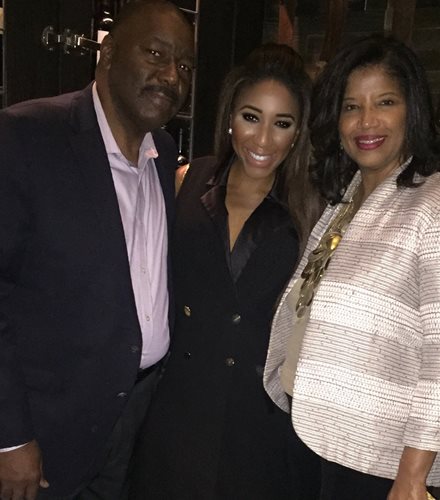July 21, 2017
By Elise Banks, M.S., LPC
Growing up, my parents would always say a specific phrase if we were discussing something only meant for our family: “This is family talk.” The phrase was a way for my family to establish boundaries around topics that were private. Because when they said this, I knew I was not allowed to talk about our discussion with anyone outside our immediate family.
Many of us in the black community are taught from an early age not to share personal and/or family information with others. For some, it’s a sign of weakness. Many do not want to be judged. For others, the resources for proper support simply are not there. Although this mindset helps keep people from “being in your business,” it also deters individuals from getting the mental and emotional help they need.
Statistics show that many minority groups do not seek psychological treatment when needed, with African-American men being least likely to seek help. There are a variety of reasons why this is, but I believe one of the reasons is the tendency to keep issues “in the family.” And this cultural standard made sense to me until the age of 21, when I suffered a meaningful relationship loss that left me distant from my family.
No one knew the pain I was going through except for my parents and as a family, we knew I needed to see a therapist. However, this directly contradicted the “family talk” boundary we always maintained. At first, we did a few family sessions with a licensed therapist at our church. This was a helpful transition for us, as we did have some hesitancy towards seeking a counselor.

When we were referred to a private practice, I was terrified. I thought: “Is there something wrong with me?” “Am I going to be judged?” “What if this person can’t help me?” Thankfully, my parents were completely supportive and encouraging, even requesting individual sessions for themselves as well. “Family talk” seemed to be no more.
Going to therapy for the first time was extremely uncomfortable as I talked about very personal issues to a stranger. On top of that, I was studying to become a therapist. I felt like a failure having to see a therapist when I was training to become one myself. Little did I know, my therapeutic experience would be life-changing. I learned more about myself, made improvements to our family dynamic and developed more compassion and empathy.
My parents and I grew closer as they learned to move from “helicopter parents” to mentors and guides as I became an adult. They also learned how to support me when I started to feel overwhelmed in life. They continue to be an amazing support system to this day. Looking back at this time allows me to see the growth I made with my family. It scares me to think what would have happened had my family and I decided against the help of a therapist.
Elise N. Banks, M.S., LPC is clinical psychotherapist in private practice and a private school in Houston, Texas. As Miss International 2015, Elise was asked to be one of the first NAMI National Ambassadors. She also serves on the NAMI Texas Board of Directors. When Elise is not working or advocating, she travels domestically and internationally to speak on mental health topics affecting children, teens, and adults. For speaking requests, you can reach Elise at [email protected].
We’re always accepting submissions to the NAMI Blog! We feature the latest research, stories of recovery, ways to end stigma and strategies for living well with mental illness. Most importantly: We feature your voices.
LEARN MORENAMI HelpLine is available M-F, 10 a.m. – 10 p.m. ET. Call 800-950-6264,
text “NAMI” to 62640, or email. In a crisis, call or text 988 (24/7).